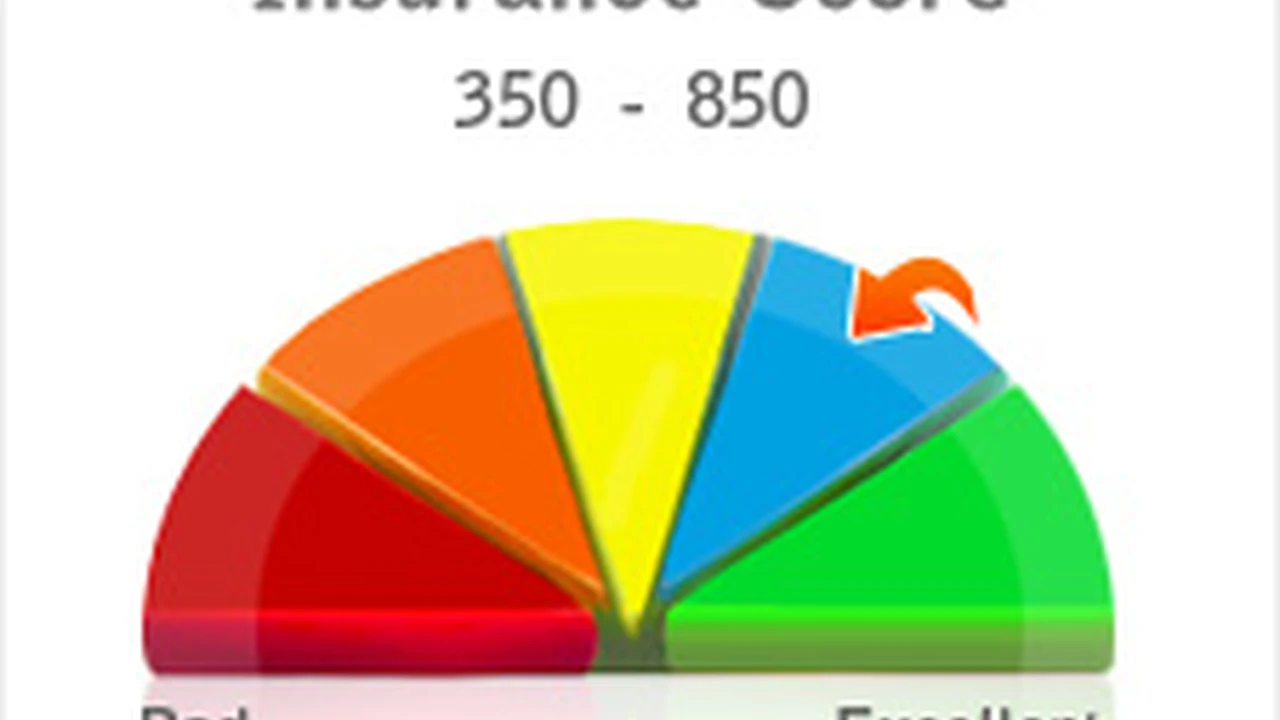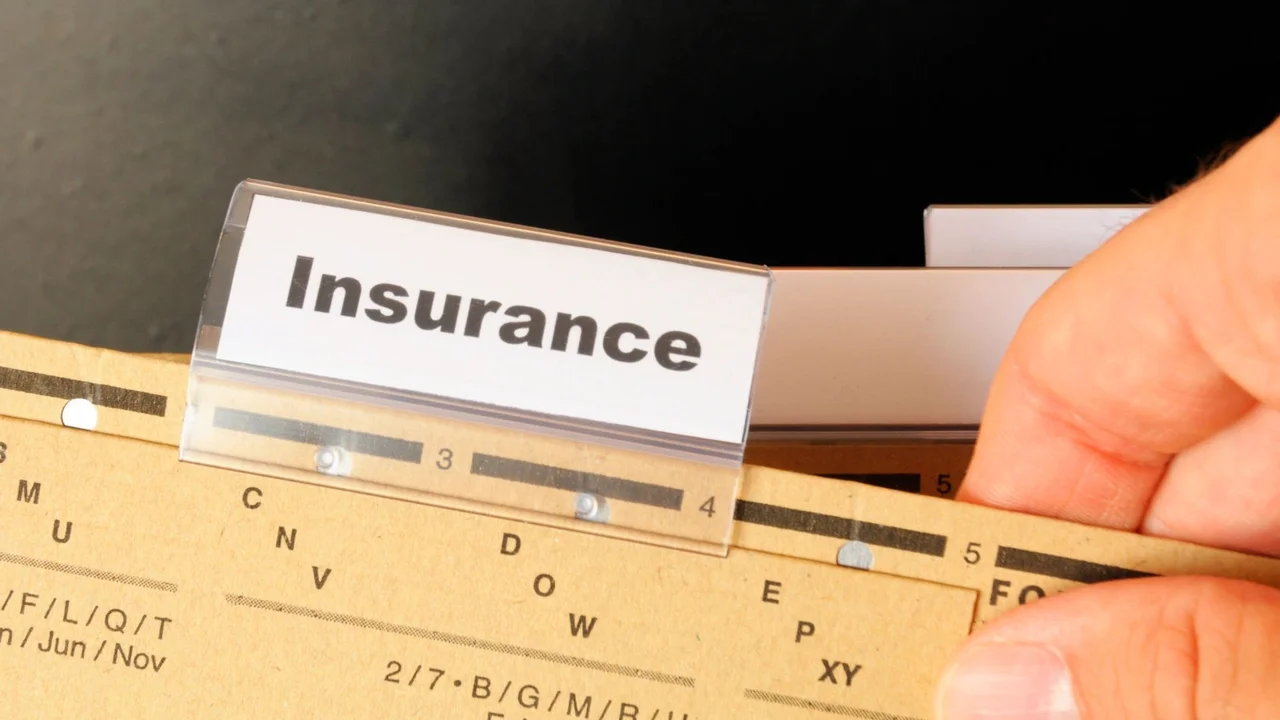Insurance Score: Understanding Its Impact on Car Insurance

What is an Insurance Score and How Does It Affect Your Car Insurance Rates Insurance Score Explained
Okay, let's dive into insurance scores. You've probably heard of credit scores, right? Well, an insurance score is similar, but it's specifically designed to predict the likelihood of you filing an insurance claim. Insurance companies use these scores, along with other factors, to determine how much you'll pay for your car insurance. Think of it as a risk assessment – the higher your score, the lower the risk you pose to the insurer, and generally, the lower your premiums will be. It's important to note that not all states allow the use of insurance scores, so check your local regulations. But in states where it's permitted, it can have a significant impact.
So, where does this insurance score come from? It's typically based on information from your credit report, but it's not *exactly* the same as your credit score. Insurers use a proprietary algorithm to analyze your credit history, looking at things like payment history, outstanding debt, length of credit history, and types of credit used. They then translate this information into a single score that represents your risk level. It's a complicated process, but the main goal is to predict how likely you are to file a claim.
Factors Contributing to a Good Insurance Score Credit History and Car Insurance Premiums
Want to boost your insurance score? Focus on building and maintaining good credit. Here are some key factors that contribute to a higher score:
- Payment History: Pay your bills on time, every time. Late payments can significantly lower your score.
- Outstanding Debt: Keep your debt levels low. A high debt-to-credit ratio can signal higher risk.
- Length of Credit History: A longer credit history generally indicates stability and responsible credit management.
- Types of Credit Used: Having a mix of credit accounts (e.g., credit cards, loans) can be beneficial, as long as you manage them responsibly.
Think of your credit report as a reflection of your financial responsibility. The better you manage your finances, the better your insurance score will be. It's a long-term game, but it's worth the effort to save money on your car insurance.
Insurance Score vs Credit Score What's the Difference and How They Impact Insurance
While insurance scores and credit scores are related, they're not identical. Your credit score is a general measure of your creditworthiness, used by lenders to assess your ability to repay loans. Your insurance score, on the other hand, is specifically designed to predict insurance claims. Insurers use a different algorithm and different weighting factors to calculate your insurance score. For example, factors that might have a major impact on your credit score might have a smaller impact on your insurance score, and vice versa.
The key takeaway is that improving your credit score can also improve your insurance score, but it's not a one-to-one relationship. You should focus on both your overall financial health and the specific factors that insurers use to assess risk.
Car Insurance Companies and Insurance Score How Insurers Use Your Score
Insurance companies use your insurance score as one factor among many to determine your car insurance rates. They combine it with other information, such as your driving record, age, vehicle type, and location, to create a comprehensive risk profile. The higher your insurance score, the lower your risk profile, and the lower your premiums will generally be. However, it's important to remember that insurance scores are just one piece of the puzzle. Even with a low insurance score, you can still find affordable car insurance by shopping around and comparing quotes from different insurers.
Many insurers use a tiered pricing system, where drivers are grouped into different risk categories based on their insurance scores. Drivers in the highest risk categories pay the highest premiums, while drivers in the lowest risk categories pay the lowest premiums. This system allows insurers to more accurately assess risk and price their policies accordingly.
Improving Your Insurance Score Tips and Strategies for Lower Car Insurance Rates
Want to see those car insurance rates drop? Here's how to improve your insurance score:
- Check Your Credit Report Regularly: Review your credit report for errors and dispute any inaccuracies. Even small errors can negatively impact your score. You can get a free copy of your credit report from each of the three major credit bureaus (Equifax, Experian, and TransUnion) once a year.
- Pay Bills On Time: Set up automatic payments to ensure you never miss a due date. Late payments are one of the biggest factors that can lower your score.
- Reduce Debt: Focus on paying down your outstanding debt, especially high-interest debt like credit card balances.
- Don't Open Too Many New Accounts: Opening multiple new credit accounts in a short period of time can lower your score.
- Be Patient: Improving your insurance score takes time. It won't happen overnight, but with consistent effort, you can see significant improvements.
Remember, it's a marathon, not a sprint. Stay focused on building good credit habits, and your insurance score will eventually reflect your efforts.
Car Insurance Quotes and Insurance Score How to Shop Around and Compare
Even with a less-than-perfect insurance score, you can still find affordable car insurance by shopping around and comparing quotes from different insurers. Don't settle for the first quote you receive. Get quotes from at least three or four different companies to see who offers the best rates. Online comparison tools can make this process easier.
When comparing quotes, be sure to compare the same coverage levels and deductibles. Don't be tempted to lower your coverage levels just to save money. You want to make sure you have adequate protection in case of an accident. Also, ask about discounts. Many insurers offer discounts for things like safe driving, good grades, and bundling your car insurance with other policies.
Car Insurance Products Recommendations and Comparisons
Okay, let's talk about some specific car insurance products and how they might fit your needs. Remember, I'm not a financial advisor, so this isn't personalized advice. Always do your own research and consult with an insurance professional before making any decisions.
Product Recommendation 1: Progressive Snapshot
Description: Progressive Snapshot is a usage-based insurance program that tracks your driving habits using a mobile app or a plug-in device. It monitors things like hard braking, rapid acceleration, and nighttime driving. If you're a safe driver, you can earn significant discounts on your car insurance premiums.
Usage Scenario: Ideal for drivers who are confident in their driving skills and are willing to share their driving data with Progressive. It's particularly useful for drivers who primarily drive during off-peak hours or who drive short distances.
Price: The discount you can earn with Snapshot varies depending on your driving habits. Some drivers can save up to 30% or more on their premiums.
Product Recommendation 2: Geico DriveEasy
Description: Similar to Progressive Snapshot, Geico DriveEasy is a usage-based insurance program that tracks your driving habits using a mobile app. It monitors things like speeding, hard braking, and distracted driving.
Usage Scenario: Suitable for drivers who want to improve their driving habits and save money on their car insurance. It can also be helpful for parents who want to monitor their teenagers' driving.
Price: The discount you can earn with DriveEasy depends on your driving habits. Geico claims that drivers can save up to 25% on their premiums.
Product Comparison: Snapshot vs. DriveEasy
Both Snapshot and DriveEasy are usage-based insurance programs that track your driving habits. The main difference is the specific data they collect and the discounts they offer. Snapshot focuses more on hard braking and rapid acceleration, while DriveEasy focuses more on speeding and distracted driving. It's important to compare the specific features and discounts offered by each program to see which one is the best fit for your needs.
Product Recommendation 3: State Farm Drive Safe & Save
Description: State Farm's Drive Safe & Save program uses a mobile app to track your driving habits, similar to the other programs. It monitors things like speeding, hard braking, and acceleration.
Usage Scenario: A good option for existing State Farm customers who want to potentially lower their rates. It might also appeal to those who prefer the brand loyalty aspect of State Farm.
Price: The potential savings vary based on individual driving habits. State Farm provides an initial discount just for signing up, and then adjusts the rates based on the collected data.
Insurance Score and Discrimination Understanding Potential Biases
It's important to acknowledge that the use of insurance scores can raise concerns about potential discrimination. Some argue that insurance scores can disproportionately impact low-income individuals and minority groups, who may have lower credit scores due to factors beyond their control. While insurers maintain that insurance scores are based on actuarial data and are not intended to discriminate, it's a valid concern that deserves attention.
Some states have laws that restrict the use of insurance scores or require insurers to provide consumers with information about how their insurance scores are calculated. If you believe you have been unfairly discriminated against based on your insurance score, you should contact your state's insurance department.
Insurance Score and Car Insurance Myths Debunking Common Misconceptions
There are a lot of myths and misconceptions surrounding insurance scores. Let's clear up some of the most common ones:
- Myth: My insurance score is the same as my credit score. Reality: They are related but not identical.
- Myth: Improving my credit score will automatically lower my car insurance rates. Reality: It can help, but it's not a guarantee.
- Myth: Insurers can access my full credit report. Reality: Insurers typically only access a limited version of your credit report that is specifically designed for insurance scoring.
- Myth: A single late payment will ruin my insurance score. Reality: While late payments can negatively impact your score, they are unlikely to ruin it completely.
Don't believe everything you hear about insurance scores. Do your own research and consult with reliable sources to get accurate information.
Frequently Asked Questions About Insurance Scores and Car Insurance
Here are some common questions about insurance scores and car insurance:
- Q: How do I find out my insurance score? A: You can request your insurance score from your insurance company.
- Q: What if I don't have a credit history? A: Some insurers offer alternative rating factors for drivers without a credit history.
- Q: Can I still get car insurance with a bad insurance score? A: Yes, but you may pay higher premiums.
- Q: How often is my insurance score updated? A: Insurers typically update insurance scores annually or semi-annually.
If you have any other questions about insurance scores, don't hesitate to ask your insurance agent or consult with a financial advisor.
:max_bytes(150000):strip_icc()/277019-baked-pork-chops-with-cream-of-mushroom-soup-DDMFS-beauty-4x3-BG-7505-5762b731cf30447d9cbbbbbf387beafa.jpg)






